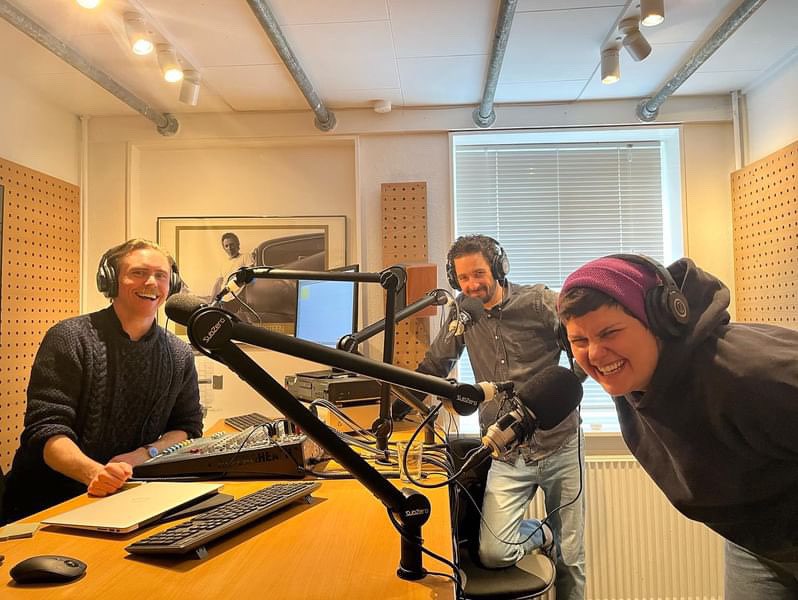Immigration, and the flux of workers across national borders, goes hand in hand with globalisation and Denmark’s businesses are constantly looking at ways to both attract skilled foreign workers and keep them from leaving.
And now, Tine Horowitz, the CEO of the Consortium for Global Talent – a joint venture between 18 of the largest international firms in Denmark – hopes to enlist a new tool in that battle in the form of social networking. She hopes that she can encourage future interaction between Danes and foreigners by using an online social networking framework that will help bridge an often icy cultural gap.
“It’s not integration we should be worrying about, it’s inclusion,” Horwitz explained. “Relationships thrive within shared interests and activities, and we want to use the internet as a platform for people to make that connection.”
Horwitz feels that simply telling Danes to change won’t help solve anything in the long-term, as Danes are notoriously bad at bringing new people into their social circles. But Horwitz hopes to change that by encouraging online interaction before meeting in person.
“Say you’re a marathon runner, musician or motorbike enthusiast – you can use this platform to leapfrog Denmark’s culture of being overly private, and get straight into common interests that friendships can be built upon,” she said.
As a recent debate held in Den Danske Design Centre on November 21 suggested, newcomers and the natives need all the help they can get in building bridges.
For Jim Smith, a Brit who lives in Copenhagen and a former employee of a Danish web development company, the stereotype that Danes are generally too culturally ‘cold’ towards foreigners rings true.

“I worked a in small company with six employees, two of whom were foreign,” Smith said. “And despite being an official part of the team, our Danish colleagues just didn’t bother trying to include the rest of us. We’d sit there in meetings and be completely ignored by our co-workers, who’d just speak Danish with one another.”
Smith insists that if it were financially feasible, he would definitely move from Denmark after residing here for five years. And he insists that this has less to do with the country's notoriously high taxes and more to do with this country’s general attitude towards foreigners.
“Yes the Danish taxes are very high,” Smith said. “But the standard of living is high too. The problem is that Danes just don’t want to talk to foreigners whatsoever. That’s what makes people miserable about settling here.”
Smith’s experiences are by no means unusual, but with one in every seven Danish marriages over the past two years being between a Dane and a foreigner, the idea that this country is completely uninterested in other nationals can’t entirely be true.
“It’s not that people deliberately ignore their foreign co-workers,” international business consultant Salaima Gourani said. “But Danes are notoriously lazy in accommodating a foreigner’s needs. And that’s what needs to changed.”
Gourani, who herself is half Danish, stressed that in all of her experiences abroad, the hospitality from other nations has been nothing but warm and friendly in comparison to Denmark.
“People pick me up from the airport, ask if I would like a map, offer help and guidance and see to my every possible need when I travel on business,” Gourani said. “But in Denmark, no-one will pick you up, offer you help or take care of you. You’re expected to sort yourself out, and get on with your life.”
And that's where Horowitz hopes a new social networking outreach can come in. By giving people a chance to connect over what they have in common, it may make it easier to accept these sorts of cultural differences.
It is hoped that the social networking program will be launched in April 2013, but there’s still a risk that the project could fall through due to a lack of funding. Horwitz has therefore turned to media outreach and lobbying politicians in a bid to change social perspectives.
“It’s a vicious cycle,” Horwitz said. “Politicians are misquoted, and the press will then use them to spin immigrant stories out of nothing, which obviously has an influence on the populous.”
While this approach has had some success, Gourani argues that it is one without many rewards. She points out that politicians can only do so much in regards to changing a nation’s attitude towards foreigners.
“It’s great that people like Horwitz are running after politicians and are trying to use the internet to merge cultures,” Gourani said. “But at the end of the day, it’s the business world that needs to act. They are the ones who need skilled foreign workers, and if they don’t sort it out, there’s a real chance Denmark will get left behind. And that’s a reality that scares me.”













